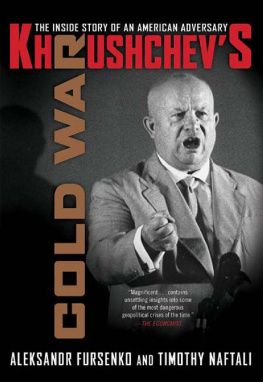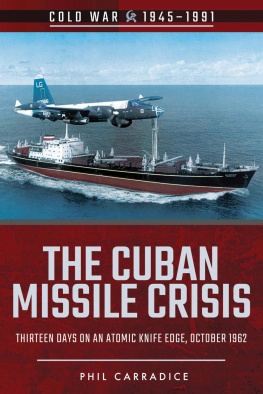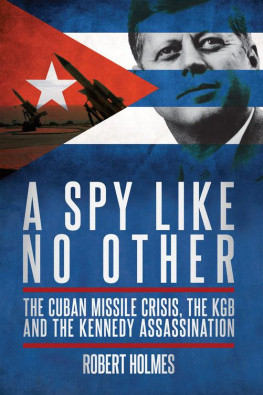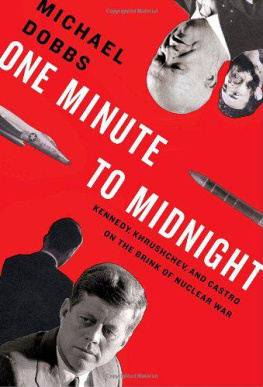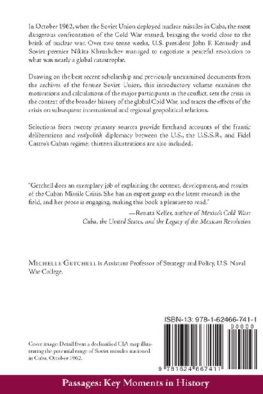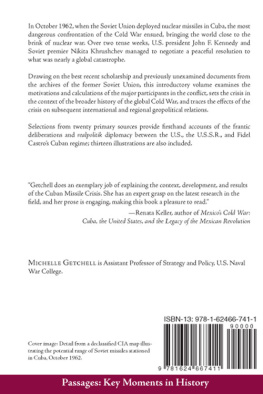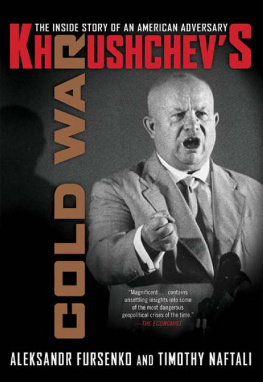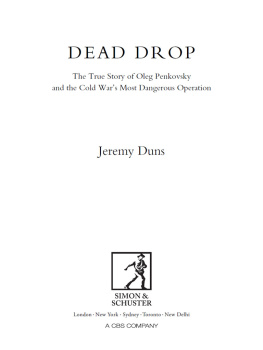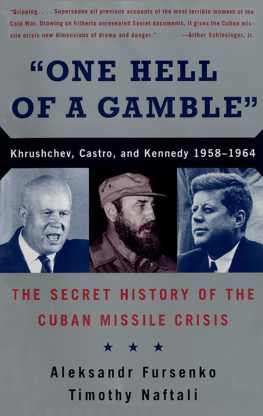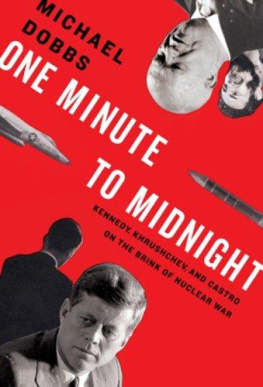Copyright 2006 by Aleksandr A. Fursenko and Timothy Naftali
For information about permission to reproduce selections from this book, write to Permissions, W. W. Norton & Company, Inc., 500 Fifth Avenue, New York, NY 10110
Fursenko, A. A.
Khrushchev's cold war: the inside story of an American adversary / Aleksandr Fursenko and Timothy Naftali.1st ed.
p. cm.
Includes bibliographical references.
ISBN: 978-0-393-33072-4
1. Soviet UnionForeign relationsUnited States. 2. United StatesForeign relationsSoviet Union. 3. Khrushchev, Nikita Sergeevich, 18941971. 4. Cold War. 5. World politics19451989. I. Naftali, Timothy J. II. Title.
W. W. Norton & Company, Inc., 500 Fifth Avenue, New York, N.Y. 10110
www.wwnorton.com
W. W. Norton & Company Ltd., Castle House, 75/76 Wells Street, London W1T 3QT
INTRODUCTION
T HERE ARE TIMES when the personality of a single human being can rival ideologies, institutions, or social movements as a cause of great international events. The influence of these individuals extends beyond their own cultures, shaping not only other societies but the competition for power among states. In the middle years of the twentieth century the Cold War entered what would be known in retrospect as its most dangerous phase. Five separate crisesSuez, Iraq, Berlin (twice), and Cubabroke out in succession; each of them seemed capable of producing World War III. For much of that time the world was caught in the grip of intense uncertainty about the future. Leaders and ordinary citizens alike had no sense of how things would work out, whether the two great adversaries, the Soviet Union and the United States, would remain in a limbo defined by no peace and no war or suddenly plunge into a devastating nuclear conflict. There was one leader, however, who stood apart from others in believing in his ability to dictate history.
On January 8, 1962, in a speech that remained secret for over forty years, Nikita S. Khrushchev announced to his colleagues in the Kremlin that the Soviet position in the superpower struggle was so weak that Moscow had no choice but to try to set the pace of international politics. We should increase the pressure, we must not doze off and, while growing, we should let the opponent feel this growth. He adopted the metaphor of a wineglass that was filled to the rim, forming a meniscus, to describe a world where political tensions everywhere were brought to the edge of military confrontation. Because if we dont have a meniscus, he explained, we let the enemy live peacefully.
The United States was the enemy that Khrushchev did not want to see live peacefully. Was the Soviet leader spoiling for war? The wineglass, Khrushchev explained in his characteristically colorful way, was not to overflow, but so long as the Soviet Union was the weaker superpower, it had to practice brinkmanship to keep its adversary off-balance. A dangerous strategy at any time in history, but in the nuclear age this approach was potentially suicidal. Rarely had a single world leader shown this much hubris. Yet the strategy that Khrushchev announced in 1962 was one that he had been practicing in various forms since he had come to dominate the Kremlins foreign policy in 1955. What made Khrushchev believe he could control the consequences of Soviet pressure tactics? Why was he confident that the United States would understand that the wineglass was not supposed to spill?
President John F. Kennedy, who like the rest of the U.S. government never knew about the January 1962 meniscus speech or the strategy behind it, had a very hard time figuring out Khrushchev. All Kennedy had to work with was the abundant evidence of a contradictory man. On the one hand, the Communist Party chief spoke of the need for dtente and disarmament. In July 1962 Khrushchev was to agree to the Declaration on the Neutrality of Laos, which eased the U.S.-Soviet struggle in Southeast Asia. At home he was credited with having ended Stalinist repression, releasing political prisoners and speaking out against the blood-splattered previous regime. Yet this same leader gave very tough anti-Western speeches and at times seemed prepared to turn the Cold War into a deadly competition. Endlessly boastful about Russias weapons of mass destruction, Khrushchev issued ultimatum after ultimatum to force the West to accept his view of how things ought to be in the Middle East, Central Europe, and Latin America.
No amount of intelligence or regional expertise ever gave American leaders in the Cold War enough insight into the Kremlin to feel confident that they knew what was going on in the corridors of power in Moscow. Were there any debates? What were their objectives? Did they ever consider going to war? What role did the personality of the dictator, in this case Nikita Khrushchev, play in the course of events?
Khrushchev left a clue to where some of the answers might be found. I will have to dictate my memoirs without access to archival materials, he confessed to a tape recorder in the late 1960s.1 With time on his hands after he was deposed as Soviet leader in October 1964, he set about dictating hundreds of hours of recollections. But the result, though fascinating, was a two-thousand-page tangle of historical truth and self-delusion.2 The answers lay elsewhere. In future generations, anyone who is interested in what I have to say can check up on me, Khrushchev revealed on tape. The facts can be found in the minutes and the protocols of meetings.3
Those minutes and protocolsthe records of decisions and debatesof the Khrushchev era, the meniscus speech included among them, remained closed in Moscow until the summer of 2003. Despite the opening of many archives in the first years after the fall of the Berlin Wall, the Kremlins most secret information on Khrushchev was locked away in an archive controlled by the Office of the President of the Russian Federation. Some of this material was shown to the authors in the mid-1990s for a book on the Cuban missile crisis. Although the material was very good, it did not touch on the other East-West clashes of the Khrushchev era, such as the Suez, Iraqi, and Berlin crises. In 2001 a collection of the Khrushchev protocols and minutes of the Presidium of the Central Committee, the top decision-making organ of the Communist Party of the Soviet Union, was transferred from this classified archive to a more accessible archive, where by 2003 it had been fully declassified. The handiwork of the chief of the General Department of the Central Committee, Vladimir Malin, these notes record the debates, decisions, and desires of the Soviet leadership from the year Khrushchev began to shape Soviet foreign policy through crises in Hungary, Suez, Berlin, and Cuba. These dynamic materials depict the hopes and fears of the Kremlin at a time when Western statesmen and journalists assumed that nuclear catastrophe was nigh. Had the CIA been able to steal these materials in 1962, U.S. intelligence and the State Department could have explained to Kennedy the outlines of his adversarys plans.

